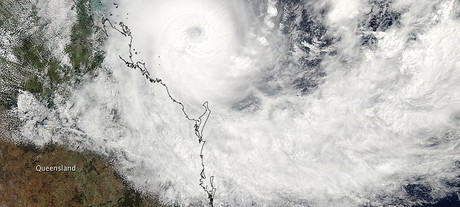Facebook not the place for disaster alerts: Bundy council

Bundaberg Regional Council has defended its approach to providing weather information and alerts to residents in the wake of the record rainfall and associated flash flooding last Monday.
The council had activated its Local Disaster Management Group, which includes a 24/7 Watch Desk Function, following the issue of a severe weather warning by the Bureau of Meteorology the day before the heavy rains.
Recorded daily rainfall exceeded 300 mL, the highest measured in Bundaberg in recorded history and nearly twice the 180 mL forecast by the bureau.
In a statement, a council spokesperson said residents’ complaints about being inadequately informed with up-to-date information about the severe weather event were misplaced.
“The obsession many people have with social media and the expectation that they will be informed minute by minute is, quite frankly, misplaced. Facebook provides only one source of public information — if people want to be sure of receiving the best information they need to tune into warnings from official and trusted sources,” the spokesperson said.
“We do appreciate that weather is unpredictable, and when it is at its most furious there will be periods when people will be on their own and will feel like they are lacking information. This is a reality that people should plan for.”
Bundaberg Council has recommended that information from official sources including the Bureau of Meteorology, the state government’s QldTraffic webpage and the ABC be incorporated into residents’ disaster planning processes.
“These systems and agencies were providing excellent, quality information in support of our local disaster management arrangements. There was no shortage of information available to the community in the lead-up to the severe weather event.”
As with every other severe weather event, a debriefing process will be held to identify which preparations and actions worked and which can be improved. This will be conducted in consultation with the community.
“Every resident should be aware of what hazards may impact their lives, their family, their pets, their homes and should have a disaster plan, at least in their own mind and preferably written down, which describes what they will do if a disaster occurs,” the spokesperson added.
“Of particular importance, every resident should be tuned into warnings and pay close attention to official forecasts and advice from emergency services when severe weather is forecast. The bottom line is that council has significant experience in disaster management situations and residents of the region can have full confidence in the ability of council to respond when and where required.”
Tackling AI complexity and trust in the Australian public sector
In a sector where much time and energy is spent on repetitive tasks, AI's ability to process...
AI agents: enhancing public sector efficiency and citizen engagement
AI agents have the potential to transform public sector efficiency and elevate citizen engagement...
Australia's 'digital divide' is growing
As the cost-of-living crisis intensifies, research reveals a growing digital divide in Australia,...



